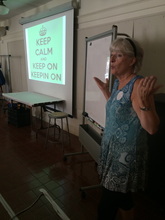
"Conferring is at the heart of the writing workshop." Lucy Calkins, (The Art of Teaching Writing, 1986, Irwin Publishing, pg. 223)
Ms. Calkins is so right...and it is never more evident than when you haven't done it. Conferencing is when you have the opportunity to teach the writer, by himself, one on one. When you sit side-by-side and talk with the writer about how it's going. When you listen to the writer tell you about his work.
You look for great moves to compliment, even as you research what to teach him as he reads his words aloud to you. You consider future teaching points based on what writing he's done. You note his progress. And you stay in touch with him.
I am a believer! And I consider conferring a non-negotiable component of the writer's workshop. Always have...
Here's my problem.
Time.
As I am teaching our graphic narrative unit of study to two first grade classrooms, I am also responsible for continued remediation work with my reading groups. I see six or more groups of students daily. My day is divided into 30-minute blocks. Even for writing.
So, what has happened is a terrible shrinking of my writing time with individual students. It seems that my 30 minutes gets eaten up with my mini-lesson and ad hoc fire extinguishing! I hardly get the phrase, "Off you go!" out of my mouth before the writers are lined up in front of me.
"I need 'Middle' paper."
"Can I start over?"
"I can't find a blue colored pencil."
..or the much more urgent need to catch up a student who missed the last week of instruction because she has a new baby in the house or had the flu.
Methodical, thorough, student-driven conversation about the work itself is nowhere to be seen. I am strictly held to the clock. The writers may have an additional 15 minutes to work, but I don't have access to them then. I am out the door to round up my next reading group.
This is where I desperately want to insert professional development. Ideally, I am creating a unit of study that will be sustainable, that teachers of future first graders will want and be able to use successfully. Lesson plans can be written. But the real pedagogical work still taunts me. My teaching heart knows that what really needs to be shared and learned through lots of coaching experiences is how to conference with students - and that includes all of the hard work of preparing for the conference. Simply reading a lesson plan is not enough. I want teachers to believe. In a lot of things.
*all kids can write
*writing is non-negotiable
*teaching the habits of mind of writing is more important than the writing itself
*teaching writing takes time - prep time, planning time, writing (teacher) time
*IT IS ALL WORTH IT!!!
So, how do I do it? This morning I spent hours looking at student work. Work that amazed me, made me laugh, made me cry, worried me, startled me, made me proud. I looked at every single panel composed by every single writer. And I made notes. Notes that will drive my conversations with these writers this week.
But, lots of this work will be catch up. I have missed some opportunities to have timely conversations with student writers about their work that might have given them more direction.
Ms. Calkins is so right...and it is never more evident than when you haven't done it. Conferencing is when you have the opportunity to teach the writer, by himself, one on one. When you sit side-by-side and talk with the writer about how it's going. When you listen to the writer tell you about his work.
You look for great moves to compliment, even as you research what to teach him as he reads his words aloud to you. You consider future teaching points based on what writing he's done. You note his progress. And you stay in touch with him.
I am a believer! And I consider conferring a non-negotiable component of the writer's workshop. Always have...
Here's my problem.
Time.
As I am teaching our graphic narrative unit of study to two first grade classrooms, I am also responsible for continued remediation work with my reading groups. I see six or more groups of students daily. My day is divided into 30-minute blocks. Even for writing.
So, what has happened is a terrible shrinking of my writing time with individual students. It seems that my 30 minutes gets eaten up with my mini-lesson and ad hoc fire extinguishing! I hardly get the phrase, "Off you go!" out of my mouth before the writers are lined up in front of me.
"I need 'Middle' paper."
"Can I start over?"
"I can't find a blue colored pencil."
..or the much more urgent need to catch up a student who missed the last week of instruction because she has a new baby in the house or had the flu.
Methodical, thorough, student-driven conversation about the work itself is nowhere to be seen. I am strictly held to the clock. The writers may have an additional 15 minutes to work, but I don't have access to them then. I am out the door to round up my next reading group.
This is where I desperately want to insert professional development. Ideally, I am creating a unit of study that will be sustainable, that teachers of future first graders will want and be able to use successfully. Lesson plans can be written. But the real pedagogical work still taunts me. My teaching heart knows that what really needs to be shared and learned through lots of coaching experiences is how to conference with students - and that includes all of the hard work of preparing for the conference. Simply reading a lesson plan is not enough. I want teachers to believe. In a lot of things.
*all kids can write
*writing is non-negotiable
*teaching the habits of mind of writing is more important than the writing itself
*teaching writing takes time - prep time, planning time, writing (teacher) time
*IT IS ALL WORTH IT!!!
So, how do I do it? This morning I spent hours looking at student work. Work that amazed me, made me laugh, made me cry, worried me, startled me, made me proud. I looked at every single panel composed by every single writer. And I made notes. Notes that will drive my conversations with these writers this week.
But, lots of this work will be catch up. I have missed some opportunities to have timely conversations with student writers about their work that might have given them more direction.
Happily, both of these writers still have the time and space to continue drafting and revising their graphic narratives before a deadline. But, I know that had I been able to sit down next to each of them earlier in their processes, the teaching would have been more thorough, more precise. And the learning would have been in the moment.
It matters.
So, going forward, I have to think long and hard about how to invite teachers into a practice brimming with conviction that conferring with students is the heart of teaching writing.
The beauty of it all is that once you have committed to sitting, side-by-side with students, you fully recognize the value and embrace the opportunity to truly get to know your writers.
This week I will be doing a little less teaching, and a whole lot more conferring with our authors. I can't wait!!!
Have a great writing week!
#allkidscanwrite
It matters.
So, going forward, I have to think long and hard about how to invite teachers into a practice brimming with conviction that conferring with students is the heart of teaching writing.
The beauty of it all is that once you have committed to sitting, side-by-side with students, you fully recognize the value and embrace the opportunity to truly get to know your writers.
This week I will be doing a little less teaching, and a whole lot more conferring with our authors. I can't wait!!!
Have a great writing week!
#allkidscanwrite
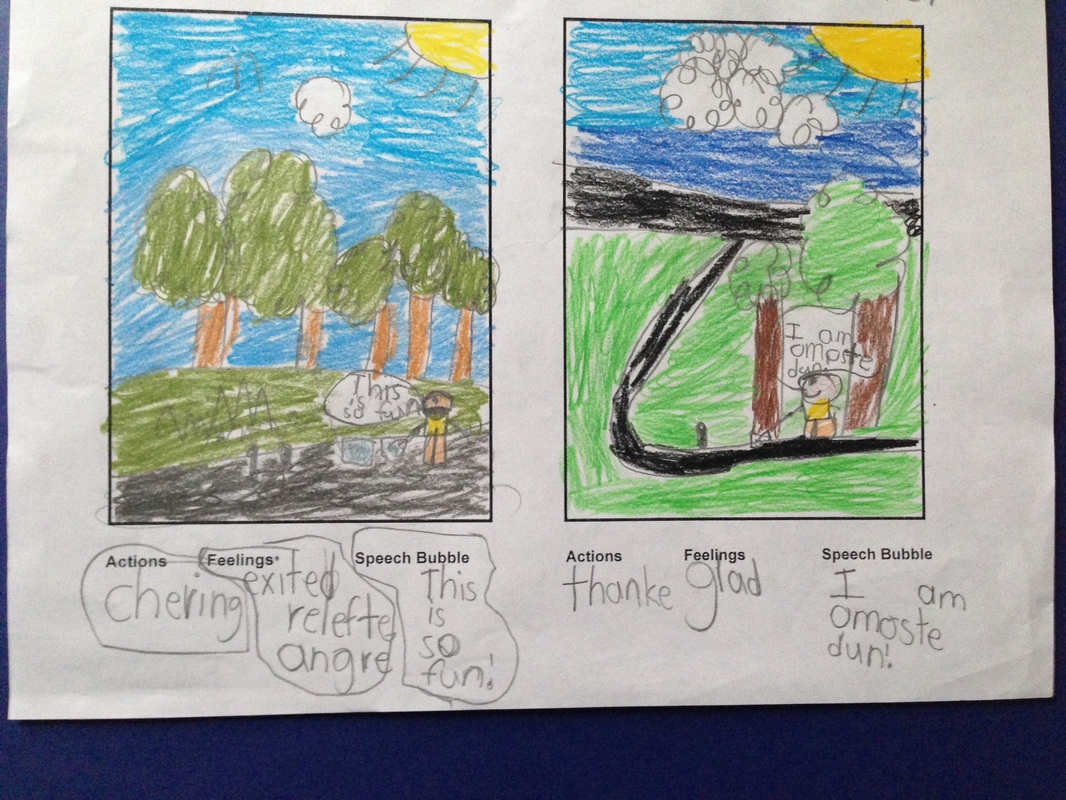
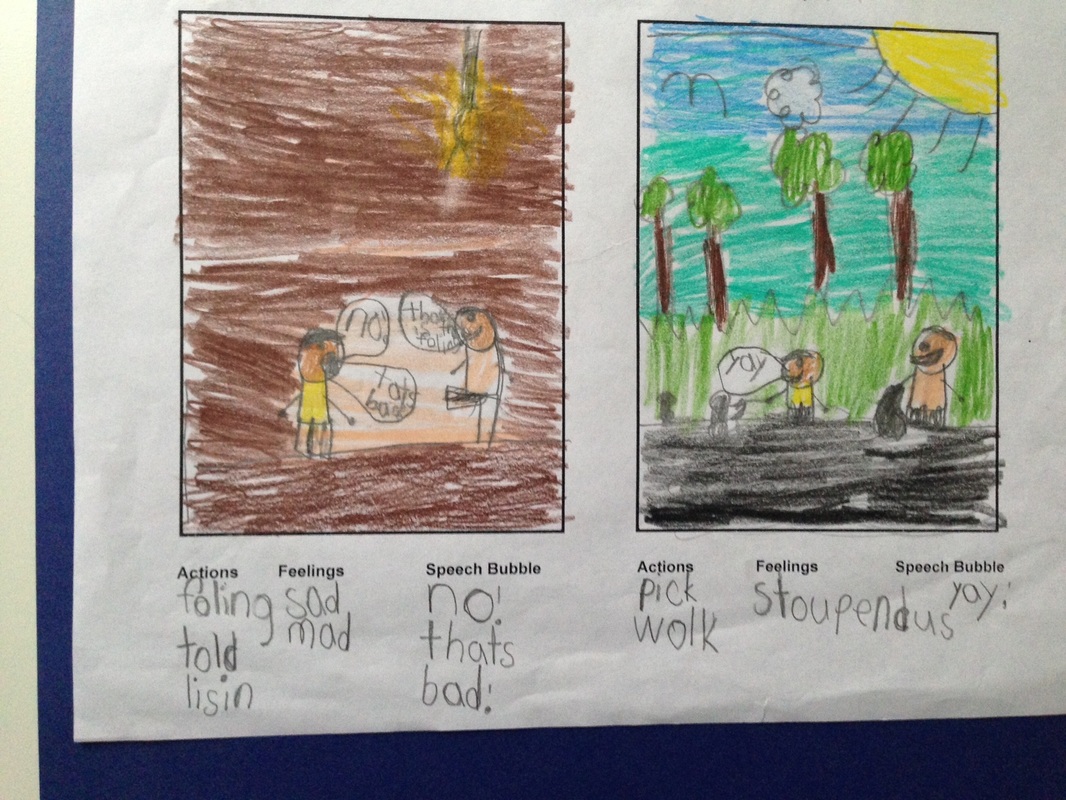
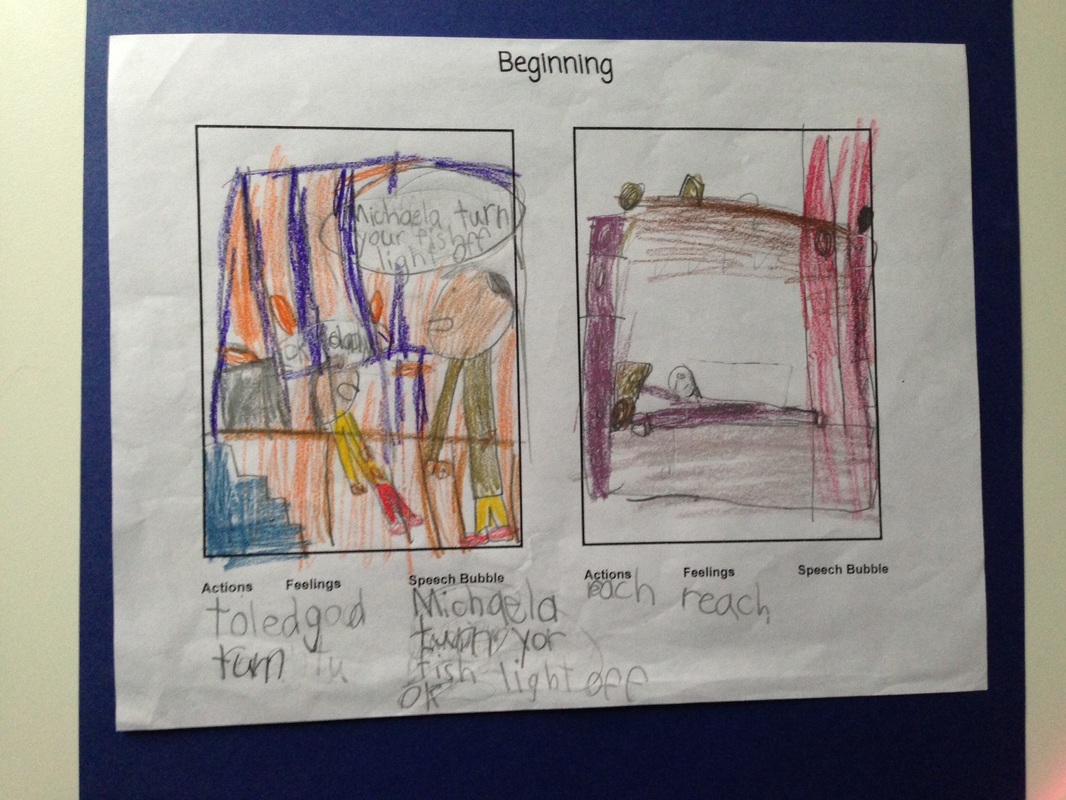
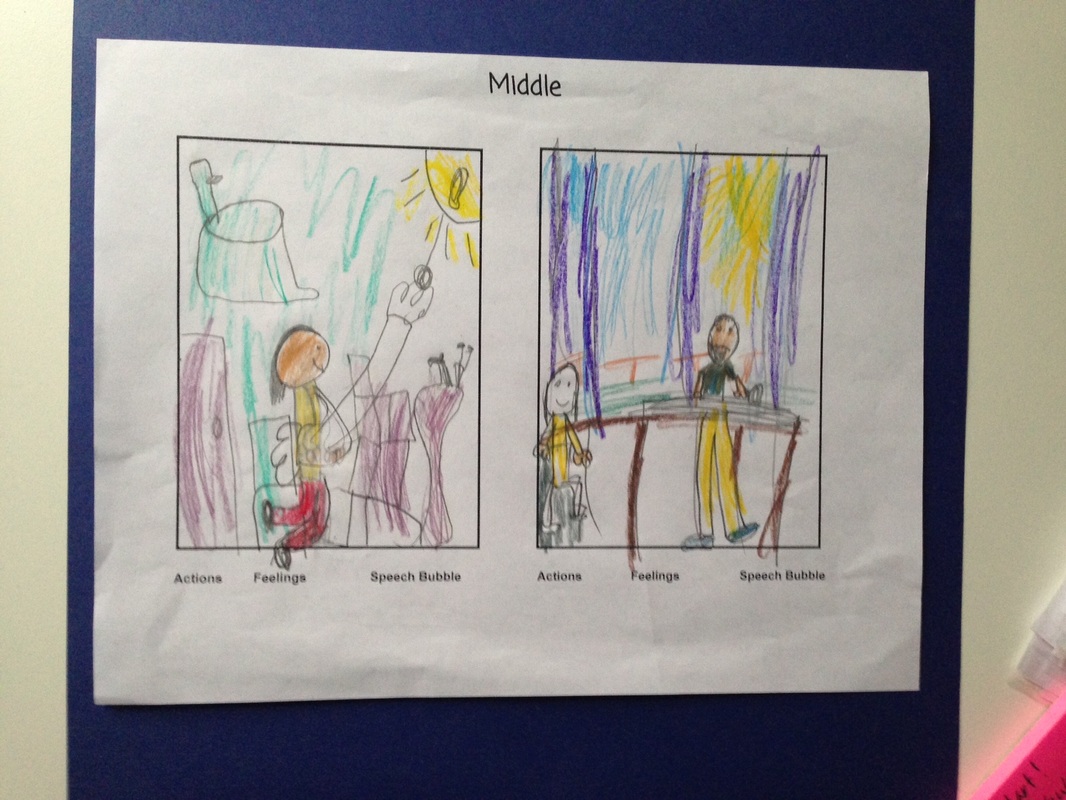
 RSS Feed
RSS Feed
